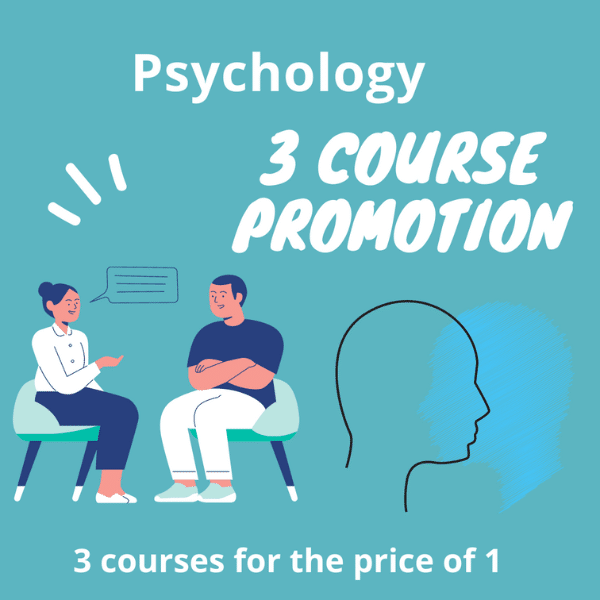The Best Treatment for Gambling Addiction
- Introduction
- Understanding Gambling Addiction
- Why Gambling Addiction Requires Treatment
- Cognitive Behavioral Therapy for Gambling Addiction
- Motivational Interviewing Therapy for Gambling Addiction
- Support Groups and Peer Networks
- Medication as a Treatment Option
- Residential Treatment Approaches for Gambling Addiction
- The Importance of Aftercare
- Treatments Found to Be Less Effective for Gambling Addiction
- Steps to Long-Term Recovery
- Codependency in Gambling Addiction: What It Is and How It Manifests
- How to Look After Yourself If You’re Codependent
Introduction
Over the past 20 years, I’ve worked with countless individuals battling addiction in all its forms, but gambling addiction stands out as particularly challenging. The face of gambling has changed dramatically during this time. With the rise of online platforms, mobile apps, and 24/7 accessibility, gambling is no longer confined to casinos or betting shops. It’s now as close as the phone in your pocket, making it harder than ever for those struggling to find relief.
Gambling addiction doesn’t just affect the individual; it ripples out, devastating relationships, families, and finances. Recovery is a tough road, filled with hurdles and moments of doubt, but it is possible. This article is designed to provide practical tips and insights for anyone looking to overcome gambling addiction.
A crucial focus is the danger of codependency, where loved ones can unknowingly harm themselves in the process of trying to help. I have included a section on codependency so they can prioritize self-preservation while finding the tools needed for healing and long-term recovery
Understanding Gambling Addiction
Gambling addiction, or gambling disorder, is a compulsive need to gamble despite the negative consequences it causes. It’s a behavioral addiction that can lead to severe financial problems, strained relationships, and mental health issues such as anxiety and depression.
Unlike casual gambling, addiction involves losing control over the behavior. Those affected might continue gambling to chase losses, seek a rush of excitement, or escape emotional distress. Recognizing the seriousness of this disorder is the first step toward effective treatment.
Why Gambling Addiction Requires Treatment
Gambling addiction doesn’t resolve on its own. It’s a complex issue involving emotional, psychological, and behavioral factors. Without treatment, the cycle of addiction can escalate, leading to devastating outcomes.
Consequences of Untreated Gambling Addiction:
- Financial Ruin: Loss of savings, accumulating debt, and even bankruptcy.
- Mental Health Issues: Depression, anxiety, and increased risk of suicide.
- Relationship Breakdown: Strained or broken relationships due to secrecy and financial strain.
Professional treatment provides tools and strategies to address these issues and support recovery.
Cognitive Behavioral Therapy for Gambling Addiction
Cognitive Behavioral Therapy (CBT) is widely regarded as one of the best treatments for gambling addiction. It helps individuals identify and challenge the distorted thinking patterns that fuel gambling behavior.
Cognitive Behavioral Therapy (CBT) is one of the most effective treatments for gambling addiction, helping individuals understand and change the thoughts and behaviors that drive their compulsion to gamble. Gambling addiction is often fueled by cognitive distortions, such as the illusion of control, superstitions, or a belief in “chasing losses” to recover money. CBT addresses these distortions, replacing them with healthier, more realistic thinking patterns.
A core component of CBT is identifying triggers—situations, emotions, or environments that lead to gambling—and developing strategies to manage these urges. Therapy may involve learning alternative coping mechanisms, such as stress management, problem-solving skills, or engaging in fulfilling activities that provide satisfaction without the risks of gambling.
CBT also delves into underlying emotional issues, such as anxiety, depression, or low self-esteem, which may contribute to gambling behavior. By addressing these root causes, individuals gain greater self-awareness and resilience.
Delivered through one-on-one sessions, group therapy, or online platforms, CBT equips clients with practical tools to prevent relapse and sustain long-term recovery. Combined with support groups or aftercare programs, it offers a comprehensive approach to overcoming gambling addiction and rebuilding a healthy, balanced life.
How CBT Helps:
- Teaches individuals to recognize triggers and manage urges.
- Focuses on replacing gambling with healthier coping mechanisms.
- Addresses underlying issues like stress or low self-esteem.
Motivational Interviewing Therapy for Gambling Addiction
Motivational Interviewing (MI) is a client-centered, evidence-based therapy designed to help individuals resolve ambivalence and strengthen their motivation to change harmful behaviors, such as gambling addiction. Unlike directive therapies, MI focuses on empowering clients to explore their own reasons for change in a non-judgmental and collaborative setting.
In the context of gambling addiction, MI involves open-ended questions, reflective listening, and affirmations to help clients identify the impact of gambling on their lives and clarify their personal goals. The therapist avoids confrontation and instead helps the individual weigh the pros and cons of their gambling behavior.
MI is particularly effective for those who feel uncertain about seeking help or committing to change. By enhancing intrinsic motivation, this approach enables clients to take ownership of their recovery journey and develop a clear action plan for achieving lasting change.
Support Groups and Peer Networks
Support groups like Gamblers Anonymous (GA) play a vital role in the recovery process. These groups connect individuals with others who share similar experiences, creating a sense of community and accountability.
Benefits of Support Groups:
- Provides emotional support from peers who understand the struggle.
- Offers a structured recovery program, such as the 12-step approach.
- Helps reduce isolation, which is common in addiction.
Regular attendance at meetings can significantly improve long-term outcomes and help prevent relapse.
Medication as a Treatment Option
While there’s no specific medication approved solely for gambling addiction, certain drugs can help manage symptoms associated with the disorder.
Common Medications Used:
- Antidepressants: To address depression or anxiety linked to gambling.
- Mood Stabilizers: To reduce impulsive behavior.
- Naltrexone: An opioid antagonist that reduces cravings by blocking the reward system.
Medication is usually most effective when combined with therapy and support networks. Always consult a healthcare provider before starting any treatment.
Residential Treatment Approaches for Gambling Addiction: Effectiveness and Recommendations
Residential treatment programs for gambling addiction, also known as inpatient treatment, can be highly effective for individuals with severe addiction or those who have not had success with outpatient therapies. These programs offer a structured environment where individuals can focus solely on their recovery without distractions or triggers from the outside world.
When Are Residential Treatments Advised?
Residential treatment is generally recommended for individuals who:
- Have a long history of gambling addiction and have been unable to stop despite previous attempts.
- Struggle with co-occurring mental health disorders like anxiety, depression, or substance abuse that complicate their gambling addiction.
- Are at high risk of relapse due to environmental or social factors that trigger gambling behavior.
- Have a strong desire to immerse themselves in a comprehensive recovery process that provides around-the-clock care.
Optimum Duration of Residential Treatment
The optimal duration of residential treatment can vary depending on the severity of the addiction and individual progress. However, most programs recommend a stay of 30 to 90 days, with longer stays often resulting in more successful long-term recovery outcomes. Shorter stays may offer initial stabilization but may not provide enough time to address deeper behavioral patterns or co-occurring issues.
Therapy Models in Residential Treatment
Residential treatment facilities often combine a variety of therapeutic approaches to address gambling addiction, including:
- Cognitive Behavioral Therapy (CBT): This is the most common and evidence-based therapy used, aimed at helping individuals recognize and challenge the thoughts and behaviors that fuel their addiction.
- Motivational Interviewing (MI): MI helps individuals explore their ambivalence about changing their behavior and builds motivation to quit gambling.
- 12-Step Programs: Similar to those used in alcohol or drug addiction, 12-step programs like Gamblers Anonymous provide peer support and structure.
- Group Therapy: Group therapy sessions allow individuals to share experiences, learn from others, and receive emotional support.
- Family Therapy: Often included to help mend relationships damaged by gambling addiction and address family dynamics that may contribute to the addiction.
Three Residential Treatment Facilities and Their Models of Therapy
- The Retreat (United Kingdom)
- Treatment Model: The Retreat is a specialized residential treatment center for gambling addiction that uses a combination of CBT, 12-step programs, and one-on-one counseling. The program is holistic and focuses on addressing the psychological and emotional issues associated with addiction.
- Length of Stay: Typically, stays range from 28 to 42 days, with longer options available based on individual needs.
- Gamblers Anonymous Recovery House (USA)
- Treatment Model: This facility follows the 12-step model, focusing on the principles of Gamblers Anonymous. It also incorporates CBT and group therapy to help individuals uncover and address the underlying causes of their gambling addiction.
- Length of Stay: The average duration of treatment is 30 days, but the program is designed to be flexible, with extended stays available based on individual progress.
- The Priory Group (United Kingdom)
- Treatment Model: The Priory Group offers residential treatment for gambling addiction through a personalized approach combining CBT, Motivational Interviewing (MI), and mindfulness techniques. The facility also addresses underlying mental health issues such as depression and anxiety.
- Length of Stay: Treatment durations typically last 28 days, but the Priory also offers extended treatment for individuals who require more time for recovery.
Residential treatment can be an essential and effective step for individuals struggling with severe gambling addiction. By providing a structured environment and combining evidence-based therapies, these programs offer intensive support that can significantly improve recovery outcomes. The recommended length of stay is typically 30 to 90 days, and the appropriate program depends on the individual’s unique needs and circumstances.
The importance of Aftercare
Yes, aftercare therapy is generally advisable and is a critical component of a comprehensive treatment plan for gambling addiction. Aftercare therapy refers to the continued therapeutic support provided after the initial treatment phase, whether following residential treatment, outpatient therapy, or other recovery interventions.
Why Aftercare Therapy is Important
- Relapse Prevention
The risk of relapse is high in the early stages of recovery, and aftercare helps individuals stay focused on maintaining their progress. Continued therapy offers strategies to cope with triggers, high-risk situations, and stress, reducing the chances of returning to gambling. - Ongoing Support and Accountability
Aftercare provides consistent emotional support and accountability. It allows individuals to process new challenges that may arise after they leave treatment, such as returning to everyday life, managing finances, or rebuilding relationships. - Addressing Underlying Issues
Many individuals with gambling addiction also face co-occurring mental health issues, such as depression, anxiety, or trauma. Aftercare therapy helps individuals continue addressing these underlying issues and ensures that their recovery is holistic. - Long-Term Recovery
Recovery is an ongoing process. Aftercare is a way to build resilience and ensure that recovery doesn’t end after the primary treatment phase. Continued therapy, such as individual counseling, support groups, or follow-up appointments, helps to solidify the changes made during initial treatment and strengthens long-term recovery goals.
Types of Aftercare Therapy
- Individual Therapy: One-on-one sessions with a therapist to continue exploring the psychological aspects of gambling addiction and work on any unresolved issues.
- Group Therapy: Group sessions where individuals can share experiences, receive support, and discuss their progress in a collective setting.
- 12-Step Programs: Ongoing participation in programs like Gamblers Anonymous (GA) provides peer support and accountability.
- Relapse Prevention Training: Special workshops or continued therapy that focuses on strategies to cope with triggers and prevent relapse.
When is Aftercare Therapy Particularly Beneficial?
Aftercare therapy is especially beneficial if:
- The individual is transitioning back into daily life after a residential treatment program.
- They have a history of relapse or face high levels of stress that could lead to unhealthy coping mechanisms.
- They are dealing with co-occurring mental health issues, such as anxiety or depression, that may require ongoing attention.
- They have not yet developed the full set of skills to manage their addiction independently.
Aftercare therapy is a valuable part of the recovery process, providing the ongoing support, tools, and structure necessary for long-term success in overcoming gambling addiction. It enhances the individual’s ability to cope with life’s challenges, reinforces the skills learned during primary treatment, and helps sustain progress in a sustainable way. While it’s not mandatory for everyone, it is highly recommended for most individuals, particularly those at risk of relapse or those with complex underlying issues.
Treatments found to be less effective for Gambling Addiction
While there are many effective treatments for gambling addiction, some approaches have been found to be less effective or have mixed results. These treatments may work for some individuals, but research has shown they are generally not as effective when compared to others. Some of these less effective treatments include:
1. Psychoanalysis
Psychoanalysis, which delves into unconscious thoughts and past experiences, has shown limited success in treating gambling addiction. While it may provide some insights, it tends to be a long-term, expensive treatment with no clear evidence of consistent effectiveness in addiction recovery.
2. Aversion Therapy
Aversion therapy involves pairing gambling behavior with an unpleasant stimulus, like electric shocks or nausea-inducing substances, in an effort to discourage the behavior. Studies have shown that while it may temporarily reduce gambling, it does not provide lasting results and is not as effective as other behavioral therapies like Cognitive Behavioral Therapy (CBT).
3. Self-Help Programs Without Professional Guidance
While some individuals can benefit from self-help programs, studies have found that those who use self-help tools without any professional therapy or support are less likely to achieve long-term recovery. These programs may lack the structure and tailored support necessary for effective treatment.
4. Hypnotherapy
Hypnotherapy, which involves inducing a trance-like state to alter behavior, has been used in some addiction treatments, including gambling. However, research indicates that there is insufficient evidence to support its long-term effectiveness in treating gambling addiction, and it may not address the underlying psychological issues driving the behavior.
5. Medication Alone
While certain medications can help reduce cravings or control symptoms associated with gambling addiction, research suggests that medication alone is not as effective as when combined with therapy, such as CBT or Motivational Interviewing. Medications like antidepressants or mood stabilizers may help manage mood disorders but do not directly address the addictive behavior itself.
While these treatments may provide short-term relief for some individuals, they are generally considered less effective than evidence-based therapies such as Cognitive Behavioral Therapy and support from peer groups, which offer more sustainable solutions for overcoming gambling addiction.
Steps to Long-Term Recovery
Achieving lasting recovery from gambling addiction involves more than stopping gambling. It requires lifestyle changes, consistent effort, and ongoing support.
Key Steps:
- Create a Relapse Prevention Plan: Identify triggers and establish strategies to handle them.
- Set Financial Safeguards: Limit access to funds by using accountability tools or asking a trusted person to manage finances.
- Engage in Positive Activities: Replace gambling with hobbies, exercise, or other fulfilling activities.
- Seek Professional Help: Attend therapy sessions regularly to address underlying issues and stay accountable.
- Stay Connected to Support Groups: Regular meetings ensure continued guidance and encouragement.
Recovery is a gradual process, but these steps can help build a strong foundation for a healthier, addiction-free life.
Codependency in Gambling Addiction: What It Is and How It Manifests
Codependency in the context of gambling addiction refers to a dysfunctional relationship dynamic where one person (often a partner, family member, or close friend) becomes overly involved in managing or enabling the behavior of the person with the gambling addiction. The codependent individual often sacrifices their own well-being to help or control the behavior of the gambler, believing that their actions will somehow “fix” or “save” the addicted person.
How Codependency Manifests in Gambling Addiction
- Enabling Behavior
Codependents often enable the gambler’s behavior by covering up or making excuses for their actions. For example, they may pay off debts incurred by the gambling, hide the gambling habits from others, or even give the gambler money to continue gambling, thinking it will prevent harm. - Neglecting Personal Needs
Codependent individuals often focus solely on the needs of the gambler, neglecting their own emotional, physical, or mental health. They may suppress their own feelings and desires in favor of the gambler’s well-being. - Constant Worry or Anxiety
Codependents can become consumed with worry and anxiety over the gambler’s behavior, fearing the consequences of their actions, such as financial problems or legal issues. This anxiety can lead to constant monitoring, controlling, or attempting to fix the situation. - Low Self-Esteem and Boundaries
Individuals in codependent relationships may have low self-esteem, feeling as if they are only valuable if they are helping the gambler. They might struggle to set healthy boundaries, allowing the gambler to manipulate or take advantage of their generosity and care. - Emotional Dependency
Codependent individuals often feel emotionally responsible for the gambler’s happiness or well-being. They may seek validation from the gambler’s approval or efforts to make them “better,” which reinforces a cycle of dependency.
The Dangers of Codependency in Gambling Addiction
- Emotional and Mental Health Strain
Constantly trying to control or manage the gambler’s behavior can lead to burnout, anxiety, depression, and feelings of helplessness. Codependents often feel trapped in an unhealthy cycle where they sacrifice their well-being for someone else’s. - Financial Damage
In some cases, codependents may financially support the gambler, either by giving them money directly or covering debts that result from gambling. This can lead to serious financial instability or even debt accumulation for the codependent. - Relationship Breakdown
Codependency can strain relationships, creating a lack of trust and resentment. As the codependent person becomes increasingly focused on the gambler’s behavior, the dynamic becomes more toxic, and the relationship may deteriorate further. - Enabling the Addiction
Rather than helping the gambler, enabling their behavior can actually prevent them from taking responsibility for their actions and seeking treatment. By continually stepping in to “fix” the situation, the codependent individual inadvertently supports the continuation of the addiction.
How to Look After Yourself If You’re Codependent
- Recognize the Codependency
The first step in addressing codependency is recognizing it. Acknowledging that your behaviors are enabling the gambler and that your well-being is being sacrificed is essential for change. - Set Boundaries
Establish clear, healthy boundaries. This means no longer financially supporting or making excuses for the gambler. It’s important to understand that you cannot control or fix someone else’s addiction. Boundaries help protect your emotional and physical health. - Seek Support
Joining a support group, such as Co-Dependents Anonymous (CoDA), can provide a safe space to share experiences with others who are going through similar struggles. Therapy, either individually or as part of a family program, can also help address codependency issues and improve self-esteem. - Focus on Self-Care
Take time to focus on your own physical, emotional, and mental well-being. This might include regular exercise, pursuing hobbies, building supportive relationships, and taking breaks from the stress of the gambling addiction. - Educate Yourself About Gambling Addiction
Understanding gambling addiction and how it affects both the individual and their loved ones can help you create a more realistic view of the situation. Recognize that the gambler’s behavior is not your fault, and that they need professional help to overcome their addiction. - Encourage the Gambler to Seek Professional Help
While it’s important not to enable the gambler, encouraging them to seek professional help or enter treatment is a healthy way to show care. This can be done in a compassionate but firm manner, emphasizing that their recovery is ultimately their responsibility. - Consider Therapy for Yourself
Therapy can be a crucial resource for codependents to work through their issues. A therapist can help you identify patterns of codependency, work on building healthy relationships, and support you in maintaining your own mental health.
Conclusion
Codependency in gambling addiction is a harmful and often overlooked aspect of the recovery process. Individuals in codependent relationships may unintentionally enable the addiction, which can exacerbate the problem for both the gambler and themselves. Recognizing the signs of codependency and taking steps to address it, such as setting boundaries, seeking support, and focusing on self-care, is essential for both personal healing and for creating an environment where the gambler can begin to take responsibility for their recovery.
FAQs
1. What is the most effective treatment for gambling addiction?
Cognitive Behavioral Therapy (CBT) is considered the most effective treatment for gambling addiction. It helps individuals understand and change the thought patterns driving their gambling behavior.
2. Can gambling addiction be cured?
While gambling addiction cannot be cured, it can be effectively managed. With therapy, support groups, and lifestyle changes, individuals can achieve long-term recovery and prevent relapse.
3. How do I help someone with gambling addiction?
Encourage open conversations about their behavior, suggest professional help, and offer emotional support. Avoid enabling their gambling by giving them money or covering debts.







